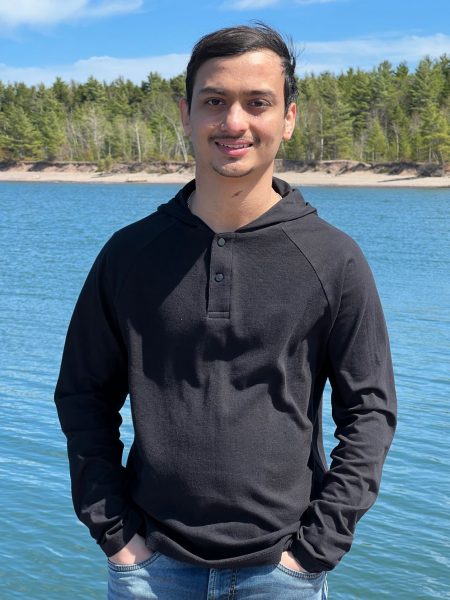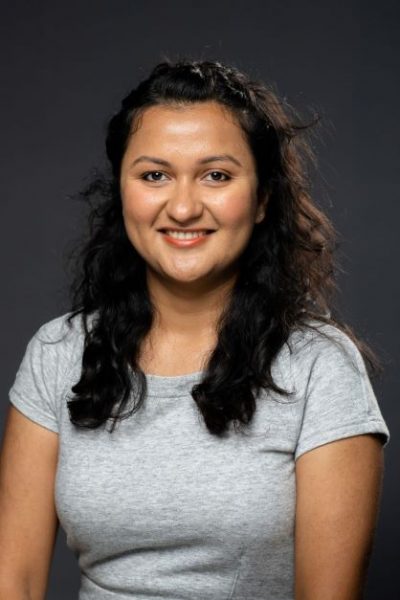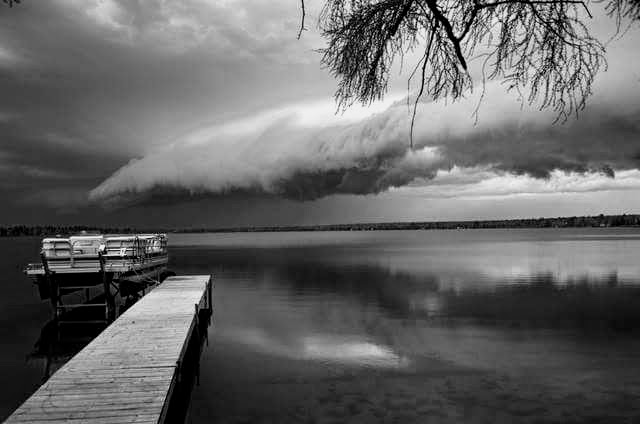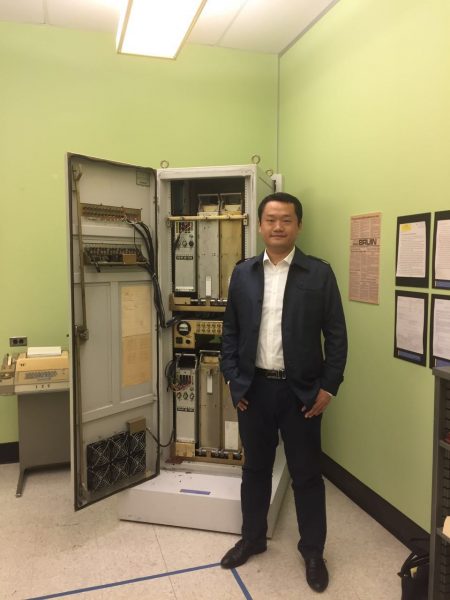I am a PhD student in the Geological and Mining Engineering and Sciences department. I do my research on geohazards, especially landslides. I specialize in geospatial data analysis and modeling, microwave remote sensing including SAR, UAV-based data analysis, and geophysical data processing. My PhD research is on developing a Landslide Early Warning System in the Western Ghats, India. I am a staunch believer in utilizing science and technology to find solutions to problems of different magnitude.
I started my doctoral research in Spring 2018 with Dr. Christo Z. Christov in the Department of Chemistry at Michigan Technological University. Before that, I completed my B. Tech. in Chemical Engineering from Rashtrasant Tukadoji Maharaj Nagpur University was working as Project Research Assistant at the Indian Institute of Technology Bombay. My research focuses on utilizing computational techniques like Molecular Dynamics (MD), Quantum Mechanics (QM), and Quantum Mechanics/ Molecular Mechanics (QM/MM) to explore structure-function relationships in enzyme catalysis.
During my time as a PhD candidate at Michigan Tech, I have researched an NSF funded project about ethylene forming enzyme. In this project, my research involved developing an enzyme model to establish the chemical mechanism of ethylene formation and L-Arg hydroxylation. I further explored if external electric fields can switch between the two reactivities of ethylene forming enzyme, with an aim to optimize ethylene generation. I have also worked on an NIH funded project about histone demethylases, activities of which have been linked to various forms of cancers. I used molecular dynamics simulations and combined QM/MM approach to establish the enzyme catalytic mechanism and structure-function relationship. Moreover, I have developed a computational framework for identifying second coordination sphere and long-range residues relevant for catalysis through analysis of protein correlated motions.
I am grateful to the Graduate Dean Awards Advisory Panel and the Dean for awarding me the Doctoral Finishing Fellowship. I would also like to offer my special thanks to my advisor Dr. Christo Z. Christov, for his support throughout my PhD program.
My love for optics and photonics is deep in my core. I have always been fascinated and motivated by this area of physics. Everything fascinated me, from natural phenomena to optical illusions, from ray optics to wave optics, from ordinary materials to extraordinary materials with optical effects. While my journey in optics and photonics was inevitable, it never lacked an element of surprise.
I started my PhD here at Michigan Tech in Fall 2018, in the Department of Physics with Dr. Miguel Levy as my advisor. In my research, I focus on investigating the fundamental properties of ultra-thin magneto-optics materials. The surface effects we are investigating will lead to the miniaturization of laser components named optical isolator and, thus, the miniaturization of lasers. We researched the experimental aspects of these properties and the theoretical, i.e., density functional theory aspect of it. This gives a complete picture of our investigation of the non-reciprocity property, i.e., Faraday rotation.
During my time at Michigan Tech, I made friends and family who helped me grow as a physicist and a better human being. Now that it’s almost time for my journey at Michigan Tech to end soon, I am sure the memories and lessons learned during these five years will always stay with me and guide me in my future endeavors.
I am indebted to the Graduate Dean Awards Advisory panel for considering and awarding me this fellowship. I am grateful to my advisor; Dr. Levy’s teachings helped me become a better person and student. He always inspired me to contribute to the community while contributing to physics. I am proud and honored to be his student.
Because the Dean studies clouds, we are celebrating International Cloud Appreciation Day!
“This year, for the first time, the Cloud Appreciation Society is launching Cloud Appreciation Day on Friday, September 16th. This will be an internationally recognized day when people around the world are encouraged to spend a few moments appreciating the beauty of the sky. We are launching our new Memory Cloud Atlas, as a place where anyone on the day can share an image of their sky and write or record some words on how it makes them feel. The Memory Cloud Atlas will serve as a snapshot on a single day of our collective views on the most dynamic, evocative, and accessible part of nature: the sky.”
Check out all the details here: https://cloudappreciationsociety.org/cloud-appreciation-day-2022/
Students who are completing a dissertation, thesis, or report are invited to join the Graduate School to learn about the resources available to them to assist in scheduling their defense, formatting their documents, and submitting their documents. In one afternoon, you can learn everything you need to be successful and complete your degree in a timely fashion! Faculty and staff who assist students with submissions are also welcome to attend. Attend the entire event, or stop in for the seminar that interests you.
- When: Wednesday, September 14, 2022 2 – 4pm (see detailed schedule below)
- Who: Students completing a dissertation, thesis or report; faculty and staff who assist students with submission
- Where: Virtual and in-person (Admin 404 – limit for room is 35); (register to attend online and receive participation instructions)
- Registration: Please register to receive handouts via email or attend online. The seminar will be available online as well as on campus.
If you are unable to join us, the event will be taped and available online after the event. The previous semester’s seminars are always available online.
Information on submitting, formatting, and more can be found online for dissertations and theses or reports.
Detailed schedule
- 2:00 – 3:00 p.m. – Submission 101
Learn what is required to submit your document to the Graduate School and the deadlines for the upcoming semester. Best for students who are completing their degree this semester or next semester. - 3:00 – 4:00 p.m. – Formatting 101-103
Learn about templates, checking your document with Adobe Acrobat, and how to use copyrighted materials. You’ll also learn where resources are on the web page so you can learn more about the topics that interest you. - 4:00 – 4:30 p.m. – Questions
Have a question that hasn’t been answered yet? We’ll be available to answer any additional questions you have.
Applications for Spring 2023 finishing fellowships are being accepted and are due no later than 4pm, October 19, 2022 to the Graduate School. Please email applications to gradschool@mtu.edu.
Instructions on the application and evaluation process are found online. Students are eligible if all of the following criteria are met:
- Must be a PhD student.
- Must expect to finish during the semester supported as a finishing fellow.
- Must have submitted no more than one previous application for a finishing fellowship.
- Must be eligible for candidacy (tuition charged at Research Mode rate) at the time of application.
- Must not hold a final oral examination (“defense”) prior to the start of the award semester.
Finishing Fellowships provide support to PhD candidates who are close to completing their degrees. These fellowships are available through the generosity of alumni and friends of the University. They are intended to recognize outstanding PhD candidates who are in need of financial support to finish their degrees and are also contributing to the attainment of goals outlined in The Michigan Tech Plan. The Graduate School anticipates funding up to ten fellowships with support ranging from $2000 to full support (stipend + tuition). Students who receive full support through a Finishing Fellowship may not accept any other employment. For example, students cannot be fully supported by a Finishing Fellowship and accept support as a GTA or GRA.
Applications for Spring 2023 PHF Graduate Assistantships are being accepted and are due no later than 4pm, October 18, 2022 to the Graduate School. Instructions on the application and evaluation process are found online. Students are eligible if all of the following criteria are met:
- Must be a PhD student conducting a research or outreach project that will promote and/or improve the overall health of Houghton, Keweenaw, Baraga, and Ontonagon communities.
- Must be a PhD candidate at the time of application.
- Must be 2 years after starting the graduate program at the time of application.
- Must not be a prior recipient of a PHF Graduate Assistantship.
- Preference will be given to applicants with long-standing local connections to Houghton, Keweenaw, Baraga, or Ontonagon county.
Priority will be given to students originally from Houghton, Keweenaw, Baraga, or Ontonagon counties. Non-resident students and international students are encouraged to apply if their health research is applicable to health needs and job shortages of our local community (obesity research, rural health, medical informatics, drug delivery and lab testing, physical therapy, etc.).
These assistantships are available through the generosity of the Portage Health Foundation. They are intended to recognize outstanding PhD talent in health-oriented research areas. Applicants should be a catalyst for promoting and improving the overall health of Houghton, Keweenaw, Baraga, and Ontonagon communities through one of the following:
- health research and technology development
- health education or preventive and wellness initiatives
- rural healthcare access, informatics, and assessment of care
Students who receive full support through a PHF Graduate Assistantship may not accept any other employment. For example, students cannot be fully supported by a PHF Graduate Assistantship and accept support as a GTA or GRA.
We are aware of the concerns regarding housing, and we are working with Residence Education and Housing Services to try and identify additional resources.
In the meantime, we would encourage you to utilize all of the resources available:
- Sign up for the waitlists for the residence halls, Hillside Place and Daniel Heights. You must be logged in to your Michigan Tech email account and not an off campus email address to access the waiting lists.
- Monitor your Michigan Tech email for possible communications about additional housing options.
- Sign up to be notified when/if the Graduate School has resources to share beyond those in this post.
- Expand your housing search to off-campus options (see below).
To help you get started with step number three, we’ve compiled a list of resources to begin your off-campus housing search!*
- Undergraduate Student Government off campus housing website
- Daniel Heights Residents looking for cotenants
- MTU Discord
- MTU Reddit
- Private housing agencies
- Houghton
- Hancock
- Chassell:
- Calumet:
*Michigan Tech is not affiliated with and does not endorse any of the listed businesses.
I was first introduced to Forest Biomaterials during my master’s degree in Germany. Previously I had known forest-based materials, predominantly wood is used as fuel, construction material and making paper. I was completely awestruck when I came across such advanced applications of wood, where every monomer of wood can be specifically used in advanced materials, and I decided this is what I wanted to do in the future.
I started my PhD here at Michigan Tech in Summer 2019, in the College of Forest Resources and Environmental Sciences with Dr. Xinfeng Xie as my advisor. In my research I focus on the incorporation of biocarbon, that is essentially carbon developed from biomass, into polymer matrices to develop reinforced and electrically conductive composite materials. The goal of this study is to develop materials that can be used as lightweight conductive automotive parts. The comprises of formulation, fabrication and characterization of the composites with a goal of future commercial application in automotive industry, as a replacement for conventional polymer composites.
I am highly indebted to the Graduate Dean Awards Advisory panel for considering and awarding me this fellowship. I am extremely grateful to my advisor Dr. Xie for his constant support and guidance. In this journey not only did my skills and experiences grow and improve, they also contributed to my growth as a person.
I started working on my Ph.D. in Fall 2016 at the Department of Electrical and Computer Engineering with Prof. Zhaohui Wang. I previously obtained my M.S. from the University of Connecticut and my B.S. from Xi’an Jiaotong University in China. My research has focused on underwater acoustic communication and networking technology.
At Michigan Tech, I first developed a comprehensive experiment system for both simulation and field underwater acoustic communication and networking experiments, which facilitated several field experiments in Keweenaw Waterway, Lake Superior, and a joint field experiment with UCLA in Marina del Rey. With the abundant field experiment data collected by this system, I explored the generative models of the underwater acoustic channel impulse response with deep learning. The generative models can further enhance the performance of reinforcement learning models for optimizing configurations of an underwater acoustic network system. I plan to continue my research and development works on underwater acoustic communication systems after I finish my Ph.D.
I would like to express my sincere gratitude to the Department of Electrical and Computer Engineering and the Graduate College of Michigan Technological University for their continuous support in achieving my Ph.D. goals. My special thank goes to my research advisor Prof. Zhaohui Wang, my committee members, and also all the lab members in our research group for their invaluable guidance and help.





